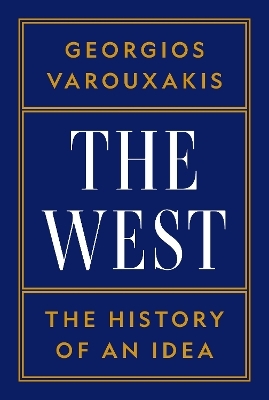
The West
The History of an Idea
Seiten
2025
Princeton University Press (Verlag)
978-0-691-17718-2 (ISBN)
Princeton University Press (Verlag)
978-0-691-17718-2 (ISBN)
- Noch nicht erschienen (ca. Juli 2025)
- Versandkostenfrei
- Auch auf Rechnung
- Artikel merken
A comprehensive intellectual history of the idea of the West
How did “the West” come to be used as a collective self-designation signaling political and cultural commonality? When did “Westerners” begin to refer to themselves in this way? Was the idea handed down from the ancient Greeks, or coined by nineteenth-century imperialists? Neither, writes Georgios Varouxakis in The West, his ambitious and fascinating genealogy of the idea. “The West” was not used by Plato, Cicero, Locke, Mill, or other canonized figures of what we today call the Western tradition. It was not first wielded by empire-builders. It was, Varouxakis shows, decisively promoted in the 1840s by the French philosopher Auguste Comte (whose political project, incidentally, was passionately anti-imperialist). The need for the use of the term“the West” emerged to avoid the confusing or unwanted consequences of the use of “Europe.” The two overlapped, but were not identical, with the West used to exclude certain “others” within Europe as well as to include the Americas.
After examining the origins, Varouxakis traces the many and often surprising changes in the ways in which the West has been understood, and the different intentions and repercussions related to a series of these contested definitions. While other theories of the West consider only particular aspects of the concept and its history (if only in order to take aim at its reputation), Varouxakis’s analysis offers a comprehensive, multilayered account that reaches to the present day, exploring the multiplicity of current and prospective meanings. He concludes with an examination of how, since 2022, definitions and membership in the West are being reworked to include Ukraine, as the evolution and redefinition continue.
How did “the West” come to be used as a collective self-designation signaling political and cultural commonality? When did “Westerners” begin to refer to themselves in this way? Was the idea handed down from the ancient Greeks, or coined by nineteenth-century imperialists? Neither, writes Georgios Varouxakis in The West, his ambitious and fascinating genealogy of the idea. “The West” was not used by Plato, Cicero, Locke, Mill, or other canonized figures of what we today call the Western tradition. It was not first wielded by empire-builders. It was, Varouxakis shows, decisively promoted in the 1840s by the French philosopher Auguste Comte (whose political project, incidentally, was passionately anti-imperialist). The need for the use of the term“the West” emerged to avoid the confusing or unwanted consequences of the use of “Europe.” The two overlapped, but were not identical, with the West used to exclude certain “others” within Europe as well as to include the Americas.
After examining the origins, Varouxakis traces the many and often surprising changes in the ways in which the West has been understood, and the different intentions and repercussions related to a series of these contested definitions. While other theories of the West consider only particular aspects of the concept and its history (if only in order to take aim at its reputation), Varouxakis’s analysis offers a comprehensive, multilayered account that reaches to the present day, exploring the multiplicity of current and prospective meanings. He concludes with an examination of how, since 2022, definitions and membership in the West are being reworked to include Ukraine, as the evolution and redefinition continue.
Georgios Varouxakis is professor of the history of political thought in the School of History at Queen Mary University of London and Codirector of the Centre for the Study of the History of Political Thought. He is the author of Mill on Nationality, Victorian Political Thought on France and the French, and Liberty Abroad: J. S. Mill on International Relations and the coauthor of Contemporary France.
| Erscheint lt. Verlag | 8.7.2025 |
|---|---|
| Zusatzinfo | 35 b/w illus. 4 maps. |
| Verlagsort | New Jersey |
| Sprache | englisch |
| Maße | 155 x 235 mm |
| Themenwelt | Geschichte ► Allgemeine Geschichte ► Neuzeit (bis 1918) |
| Geisteswissenschaften ► Geschichte ► Regional- / Ländergeschichte | |
| Geschichte ► Teilgebiete der Geschichte ► Kulturgeschichte | |
| Sozialwissenschaften ► Politik / Verwaltung ► Politische Theorie | |
| ISBN-10 | 0-691-17718-X / 069117718X |
| ISBN-13 | 978-0-691-17718-2 / 9780691177182 |
| Zustand | Neuware |
| Informationen gemäß Produktsicherheitsverordnung (GPSR) | |
| Haben Sie eine Frage zum Produkt? |
Mehr entdecken
aus dem Bereich
aus dem Bereich
Giordano Bruno - ein ketzerisches Leben
Buch | Hardcover (2024)
C.H.Beck (Verlag)
CHF 41,85
das dramatische 16. Jahrhundert
Buch | Hardcover (2024)
Rowohlt Berlin (Verlag)
CHF 47,60


